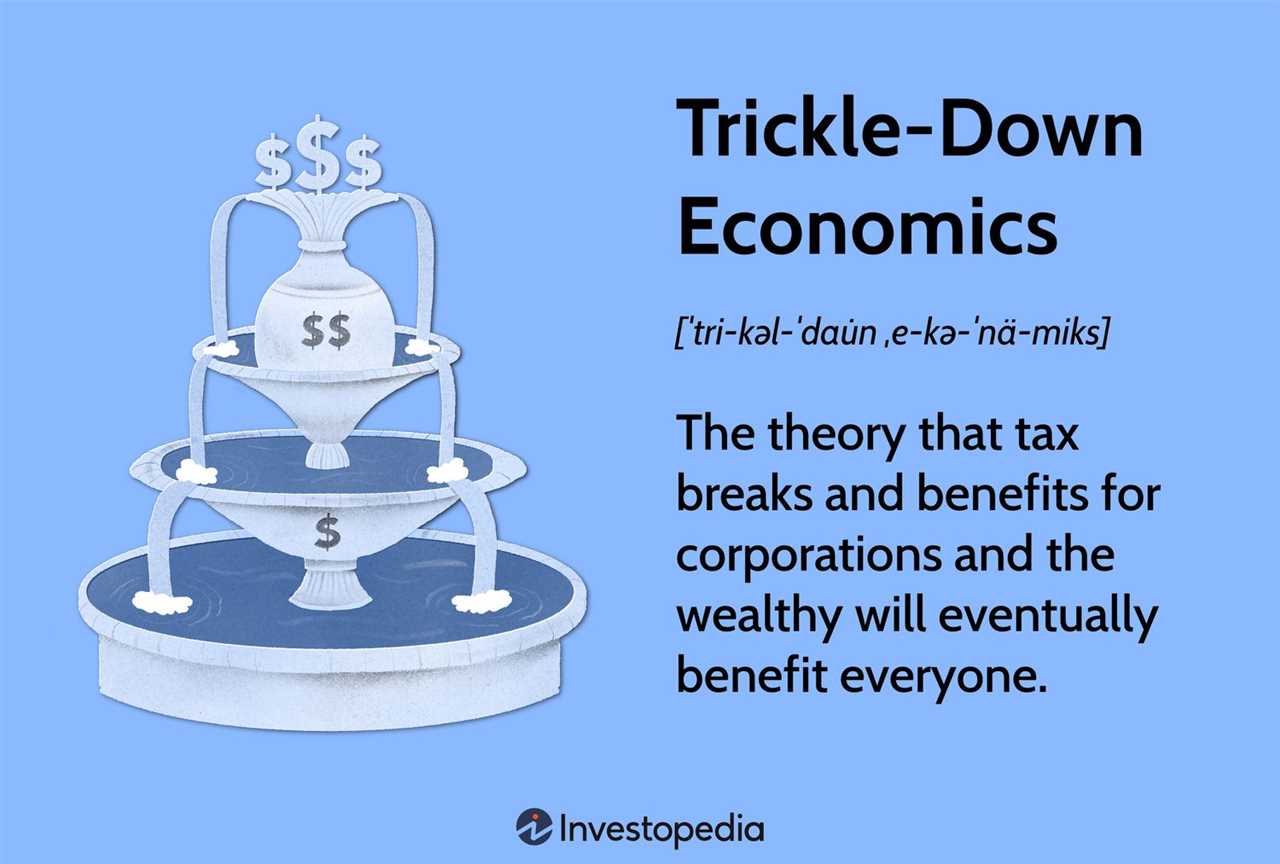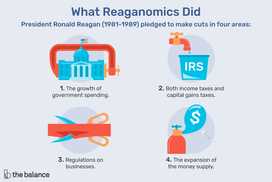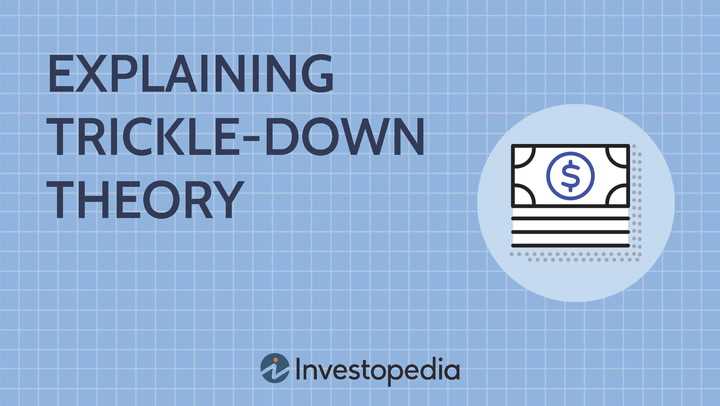Exploring the Theory

Trickle-down economics is a theory that suggests that economic benefits, such as increased wealth and prosperity, generated by the wealthy will eventually “trickle down” to the lower socioeconomic classes. The theory posits that when the wealthy receive tax cuts or other economic incentives, they will invest their additional wealth into businesses and job creation, leading to economic growth and improved living standards for all.
Proponents of trickle-down economics argue that by providing economic incentives to the wealthy, it encourages them to invest in businesses, which in turn creates job opportunities. This, in theory, leads to increased employment rates and higher wages for workers. Additionally, they argue that economic growth generated by the wealthy will result in increased tax revenue for the government, which can then be used to fund public services and social programs.
Key Assumptions
Trickle-down economics is based on several key assumptions:
- The wealthy are the primary drivers of economic growth.
- Reducing taxes and regulations on the wealthy will incentivize them to invest and create jobs.
- Increased job opportunities and economic growth will benefit all members of society.
However, critics of trickle-down economics argue that the theory is flawed and does not lead to the desired outcomes. They argue that the benefits of economic growth primarily accrue to the wealthy, while the lower socioeconomic classes do not experience significant improvements in their living standards. Critics also point out that the theory does not account for factors such as income inequality, market failures, and the concentration of wealth among a few individuals.
Evidence and Controversies
The effectiveness of trickle-down economics has been a subject of debate among economists and policymakers. Some studies suggest that tax cuts for the wealthy can stimulate economic growth, while others argue that the benefits are not evenly distributed and do not lead to significant improvements for the majority of the population.
One of the key controversies surrounding trickle-down economics is the issue of income inequality. Critics argue that the theory exacerbates income inequality by concentrating wealth among the wealthy, while the lower socioeconomic classes struggle to make ends meet. They argue that policies focused on reducing inequality and providing support to the most vulnerable members of society are more effective in promoting overall economic well-being.
Conclusion
Trickle-down economics is a theory that suggests economic benefits generated by the wealthy will eventually benefit all members of society. While proponents argue that it encourages investment and job creation, critics argue that it exacerbates income inequality and does not lead to significant improvements for the majority of the population. The effectiveness of trickle-down economics remains a topic of debate, and policymakers must carefully consider its implications when designing economic policies.
Analyzing Policy Implications
Trickle-down economics, as a theory, has been the subject of much debate and controversy. Proponents argue that by implementing policies that benefit the wealthy, such as tax cuts and deregulation, the benefits will eventually “trickle down” to the rest of society, leading to economic growth and prosperity for all.
However, critics argue that trickle-down economics is flawed and ineffective. They point out that the benefits of such policies primarily go to the wealthy, exacerbating income inequality and leaving the majority of the population behind. They argue that the wealthy are more likely to save or invest their additional income rather than spend it, which does not stimulate economic growth as proponents claim.
Furthermore, critics argue that trickle-down economics neglects the importance of addressing the needs of the middle and lower classes directly. They argue that policies such as increasing the minimum wage, investing in education and healthcare, and providing social safety nets are more effective in promoting economic growth and reducing inequality.
The Role of Government

One of the key policy implications of trickle-down economics is the belief in limited government intervention in the economy. Proponents argue that excessive regulation and taxation hinder economic growth and innovation. They advocate for lower taxes on businesses and the wealthy, as well as reduced government spending.
On the other hand, critics argue that government intervention is necessary to address market failures and ensure a more equitable distribution of wealth. They argue that without government regulations, the wealthy and powerful can exploit their position to the detriment of the majority. They advocate for progressive taxation, stricter regulations on businesses, and increased government spending on social programs.
International Implications
Trickle-down economics also has implications for international trade and globalization. Proponents argue that by promoting free trade and reducing barriers to international investment, countries can attract foreign capital and stimulate economic growth. They believe that the benefits of globalization will eventually trickle down to all segments of society.
Critics, however, argue that globalization can lead to job losses and wage stagnation for workers, particularly in industries that face competition from lower-cost countries. They argue that trickle-down economics exacerbates these negative effects by prioritizing the interests of multinational corporations and the wealthy elite over the well-being of workers.
Evaluating Critiques and Counterarguments

Trickle-down economics has been a topic of intense debate and criticism since its inception. While proponents argue that it promotes economic growth and benefits all members of society, critics argue that it primarily benefits the wealthy and exacerbates income inequality.
Another critique is that trickle-down economics fails to address the root causes of income inequality. Critics argue that simply providing tax cuts and incentives to the wealthy does not address the systemic issues that lead to wealth concentration in the first place. They argue that policies should instead focus on increasing access to education, healthcare, and other essential services for all members of society, as well as implementing progressive taxation to redistribute wealth more equitably.
Counterarguments to these critiques often highlight the potential benefits of trickle-down economics. Proponents argue that when the wealthy have more disposable income, they are more likely to invest in businesses, which can lead to job creation and economic growth. They also argue that providing incentives for wealth creation can encourage entrepreneurship and innovation, which can benefit society as a whole.
Additionally, proponents argue that trickle-down economics can lead to increased philanthropy and charitable giving by the wealthy. They argue that when the wealthy have more disposable income, they are more likely to donate to charitable causes, which can help address social issues and improve the well-being of disadvantaged individuals.

Emily Bibb simplifies finance through bestselling books and articles, bridging complex concepts for everyday understanding. Engaging audiences via social media, she shares insights for financial success. Active in seminars and philanthropy, Bibb aims to create a more financially informed society, driven by her passion for empowering others.
